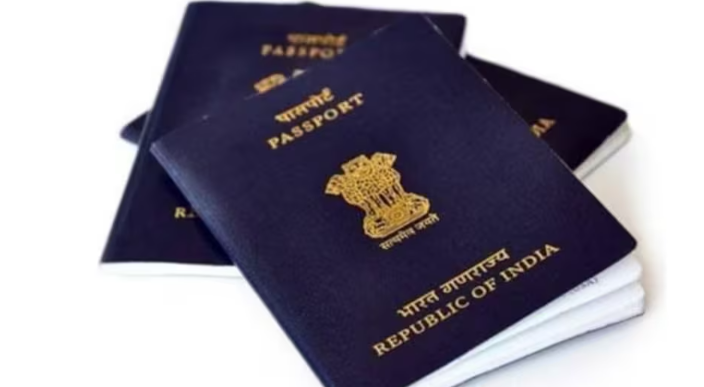World’s Most Powerful Passports 2024: India Ranks at 82nd (GS Paper 2, IR)

Introduction
- According to the latest Henley Passport Index, Singapore’s passport has been ranked as the most powerful in the world, allowing visa-free entry to an impressive 195 destinations.
- This ranking highlights Singapore’s extensive diplomatic efforts and the significant travel freedom enjoyed by its citizens.
- On the other hand, India’s passport is positioned at 82nd, permitting visa-free access to 58 countries, which reflects a moderate level of international mobility.
Global Passport Rankings
- 1st Place: Singapore – 195 destinations
- Joint 2nd Place: France, Germany, Italy, Japan, Spain – 192 destinations
- Joint 3rd Place: Austria, Finland, Ireland, Luxembourg, Netherlands, South Korea, Sweden – 191 destinations
- 4th Place: UK, Belgium, Denmark, New Zealand, Norway, Switzerland – 190 destinations
- 8th Place: USA – 186 destinations
- 82nd Place: India – 58 destinations (tied with Senegal and Tajikistan)
- The rankings reflect significant geopolitical shifts. In 2014, both the UK and USA jointly held the top spot, but have since dropped, with the UK now sharing 4th place and the USA ranking 8th.
- Meanwhile, Afghanistan remains at the bottom, with its passport providing access to only 26 countries, underscoring the severe limitations faced by its citizens.
Noteworthy Climbs and Drops
Several countries have experienced remarkable changes in their passport rankings:
- UAE: The United Arab Emirates has made a significant leap, rising from 62nd to 9th place, with its passport now offering access to 185 destinations. This rapid improvement reflects the UAE’s strategic diplomatic initiatives and international agreements.
- China: China has climbed from 83rd to 59th, now providing access to 85 destinations, a notable improvement highlighting its growing international influence.
- Ukraine: Ukraine has jumped from 53rd to 30th, offering access to 148 destinations, likely influenced by recent geopolitical developments and enhanced international relations.
- Venezuela: In contrast, Venezuela has dropped from 25th to 42nd, reflecting the country’s ongoing political and economic challenges.
- Bangladesh: Bangladesh has seen a decline from 86th to 97th, indicating a reduction in travel freedom for its citizens.
- Other countries such as Yemen, Nigeria, and Syria also experienced declines, highlighting the complex interplay between domestic issues and international mobility.
Access Discrepancies
- The disparities in passport strength reveal significant global inequalities.
- Countries like Nepal, Djibouti, Burundi, Sri Lanka, and Somalia have weak passports with limited travel freedom, reflecting broader socio-economic and political challenges.
- Conversely, nations like Barbados, Singapore, Malaysia, and the Bahamas have strong passports with minimal disparities in access, indicating stable governance and robust diplomatic relations.
About Henley Passport Index
- The Henley Passport Index has been a key measure of global mobility since its inception in 2006.
- It ranks passports based on the number of countries that offer visa-free or visa-on-arrival access.
- The index, updated quarterly, sources its data from the International Air Transport Association (IATA) and plays a crucial role in discussions on global mobility and travel freedom.
- It not only reflects the current state of international travel but also symbolizes international agreements and diplomatic ties.
Conclusion
- The 2024 Henley Passport Index underscores the significant variations in global mobility and travel freedom.
- Singapore’s position at the top highlights its successful diplomatic efforts, while India’s ranking at 82nd shows a moderate level of international mobility for its citizens.
- The shifting ranks of countries like the UAE, China, and Ukraine illustrate the dynamic nature of global politics and diplomacy.
- Meanwhile, the persistent challenges faced by countries with weaker passports emphasize the ongoing inequalities in global mobility.
- These rankings are more than just numbers; they influence international relations and highlight the broader geopolitical landscape.


